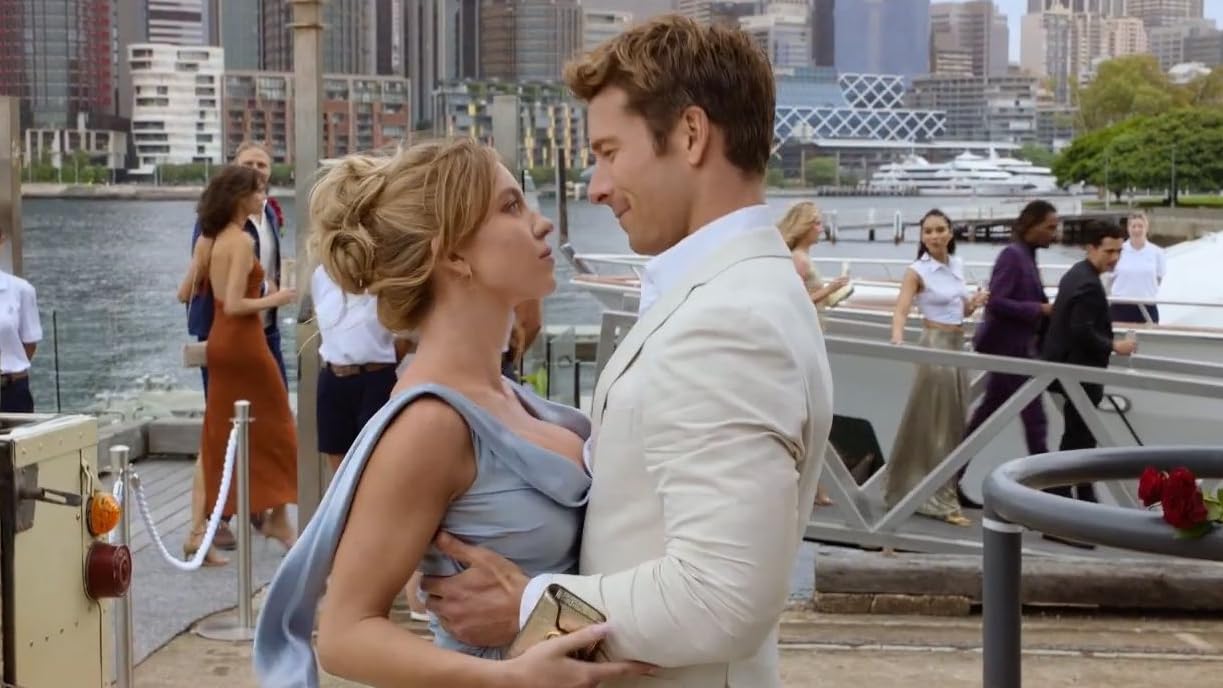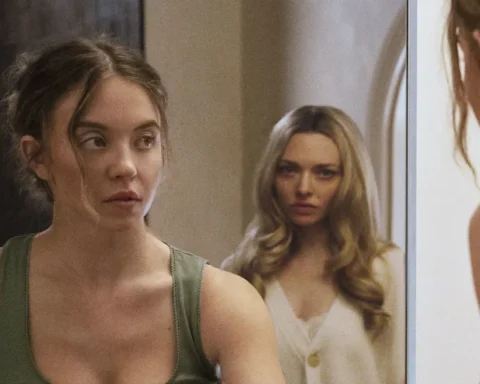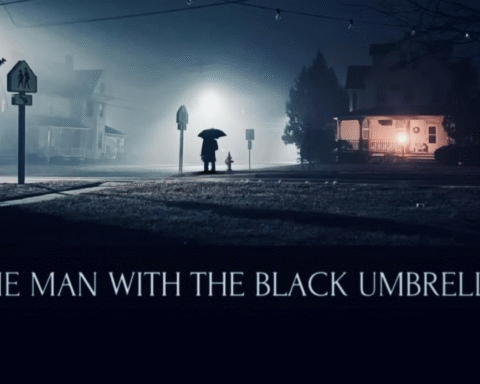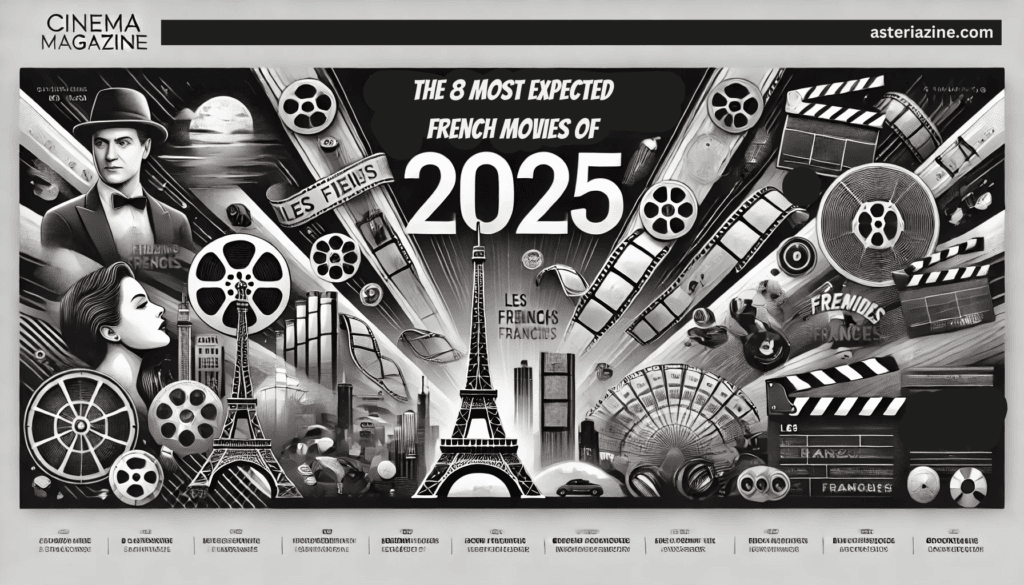Anyone But You is the quintessential guilty pleasure movie. You might not be proud of watching it—you’ll hope to avoid running into anyone you know in the dim cinema hallways—but you’re drawn to it all the same. And why? Precisely because it isn’t trying to be high art. It’s a romantic comedy, unapologetically formulaic, designed to deliver a feel-good experience devoid of surprises or risks.
The Comfort of the Familiar Romance in Anyone But You
The beauty of Anyone But You lies in its simplicity. It promises everything we expect from a rom-com: love, laughter, and a neatly wrapped happy ending. With Gwen Powell and Sydney Sweeney leading the cast, the film relies heavily on their on-screen chemistry and off-screen charm, amplified by a press tour filled with flirtatious banter and calculated “are-they-or-aren’t-they?” speculation. This meta-entertainment strategy, a hallmark of many romantic comedy duos, works because it plays directly into the audience’s desires.
The plot is straightforward: Bea and Ben despise each other yet find themselves inextricably intertwined during a vacation in Sydney. Cue the picturesque backdrops of Australia, a grand villa, bronzed physiques, and a never-fail wedding invitation to set the stage for romance. The film doesn’t reinvent the wheel, but it doesn’t need to—its charm is in delivering precisely what we expect, down to the last cliché.

A Cinematic Recipe That Works
Director Will Gluck draws from a rich history of rom-com influences, referencing everything from Shakespeare’s Much Ado About Nothing to Jane Austen’s Pride and Prejudice. The love/hate dynamic between the protagonists and pivotal moments of overheard conversations feel as though they were plucked directly from Austen’s playbook. For added flair, there’s even a parody of the iconic Titanic bow scene, cementing the film’s playful homage to its genre ancestors.
Secondary characters shine as modern-day Arlecchinos, meddling in the protagonists’ love lives, much like the comedic servants of Italian commedia dell’arte. These antics contribute to the screwball charm of the film, ensuring the story’s momentum never falters. While the camera movements and dialogue are predictably polished and the themes far from subtle, Anyone But You knows its audience and delivers the formula with finesse.
The Romance That Sells in Anyone But You
One standout moment deserves special mention: the love declaration. Unlike the grand airport chase we’ve come to expect, this scene unfolds in a far less predictable setting. It’s absurdly cheesy and impossibly corny—so much so that it circles back to being endearing. The earnestness of the declaration, coupled with its sheer lack of subtlety, creates a moment of hilarity and charm. It’s the type of scene that you laugh at and secretly adore, the cinematic equivalent of belting out a sappy pop song in the shower. It works precisely because it doesn’t take itself too seriously, yet it manages to strike an emotional chord.





The Unchanging Flaws of the Genre
Despite its charms, Anyone But You doesn’t escape the problematic tropes that often plague romantic comedies. The brooding, emotionally unavailable male meets the awkward yet endearing woman trope feels increasingly outdated. The emphasis on perfect physiques and shallow conflicts only highlights the film’s lack of realism. Most notably, the romanticization of marriage as the ultimate life goal remains a central, albeit tired, theme. While the movie is slightly more self-aware than others in its category, it doesn’t fully embrace the opportunity to subvert these clichés.
Anyone But You is a film best enjoyed with full awareness of its flaws. It doesn’t pretend to be anything other than what it is: a glossy, predictable, and thoroughly entertaining rom-com. If you’re willing to set aside expectations of depth or modern sensibilities, you’ll find it delivers an unabashedly joyful escape. After all, isn’t that what guilty pleasures are all about?









